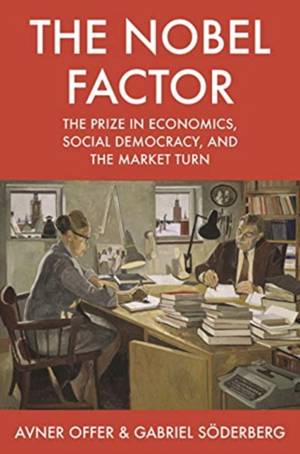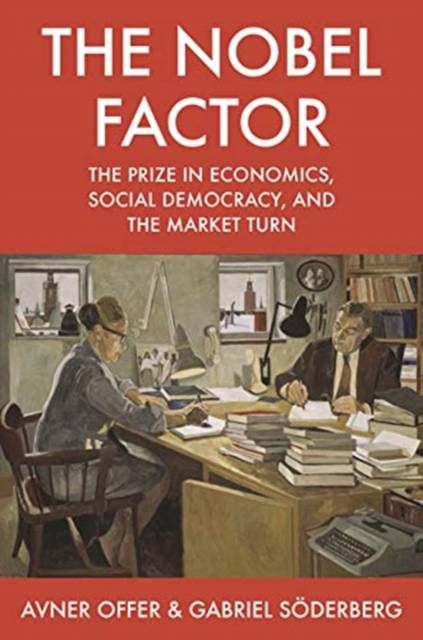
- Retrait gratuit dans votre magasin Club
- 7.000.000 titres dans notre catalogue
- Payer en toute sécurité
- Toujours un magasin près de chez vous
- Retrait gratuit dans votre magasin Club
- 7.000.000 titres dans notre catalogue
- Payer en toute sécurité
- Toujours un magasin près de chez vous
The Nobel Factor
The Prize in Economics, Social Democracy, and the Market Turn
Avner Offer, Gabriel Söderberg
Livre broché | Anglais
43,95 €
+ 87 points
Format
Description
How the creation of the Nobel Prize in Economics changed the economics profession, Sweden, and the world
Our confidence in markets comes from economics, and our confidence in economics is underpinned by the Nobel Prize in Economics, which was first awarded in 1969. Was it a coincidence that the prize and the rise of free-market liberalism began at the same time? The Nobel Factor is the first book to describe the origins and power of the most important prize in economics. It tells how the prize, created by the Swedish central bank, emerged from a conflict between central bank orthodoxy and Sweden's social democracy. The aim was to use the halo of the Nobel brand to influence the future of Sweden and the rest of the developed world by enhancing the bank's authority and the prestige of market-friendly economics. And the strategy has worked spectacularly--with sometimes disastrous results for societies striving to cope with the requirements of economic theory and deregulated markets. Drawing on previously untapped archives and providing a unique analysis of the sway of prizewinners, The Nobel Factor offers an unprecedented account of the real-world consequences of economics and its greatest prize.Spécifications
Parties prenantes
- Auteur(s) :
- Editeur:
Contenu
- Nombre de pages :
- 344
- Langue:
- Anglais
Caractéristiques
- EAN:
- 9780691196312
- Date de parution :
- 19-11-19
- Format:
- Livre broché
- Format numérique:
- Trade paperback (VS)
- Dimensions :
- 147 mm x 224 mm
- Poids :
- 453 g







